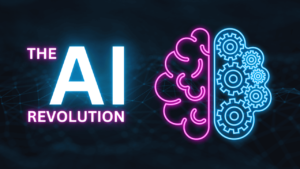In 2024, artificial intelligence (AI) continues to be a game-changer across various industries. From healthcare to finance, transportation to entertainment, AI is driving innovation and transforming the way we live and work. This blog will explore the latest trends in AI, its applications, and how it’s reshaping different sectors. Let’s dive deep into the world of AI and uncover its potential and challenges.
Understanding Artificial Intelligence
Artificial intelligence refers to the simulation of human intelligence in machines that are programmed to think and learn like humans. These machines can perform tasks that typically require human intelligence, such as visual perception, speech recognition, decision-making, and language translation.
AI can be categorized into two types:
- Narrow AI: Also known as Weak AI, this type is designed to perform a narrow task (e.g., facial recognition or internet searches). It operates within a pre-defined range and cannot perform beyond its limitations.
- General AI: Also known as Strong AI, this type has the capability to understand, learn, and apply knowledge in a way that is indistinguishable from human intelligence. General AI remains largely theoretical as of 2024.
Latest Trends in AI
As we progress through 2024, several key trends in AI are shaping the future of various industries:
- AI in Healthcare
- Personalized Medicine: AI algorithms analyze vast amounts of patient data to develop personalized treatment plans. These plans take into account individual genetic profiles, lifestyle, and other factors to improve treatment outcomes.
- Diagnostic Accuracy: AI-powered diagnostic tools are enhancing the accuracy of disease detection. For example, AI can analyze medical images to identify signs of cancer or other conditions more accurately than traditional methods.
- Telemedicine: AI-driven telemedicine platforms provide remote consultations, reducing the need for in-person visits. These platforms use natural language processing (NLP) to understand patient symptoms and provide preliminary diagnoses.

- AI in Finance
- Algorithmic Trading: AI algorithms are used to execute trades at high speeds and with precision. These algorithms analyze market trends and make data-driven decisions to maximize returns.
- Fraud Detection: AI systems monitor transactions in real-time to identify and prevent fraudulent activities. Machine learning models detect patterns that indicate fraudulent behavior, allowing for swift action.
- Personal Finance Management: AI-powered apps help users manage their finances by providing insights into spending habits, budgeting advice, and investment recommendations.
- AI in Transportation
- Autonomous Vehicles: Self-driving cars are becoming more advanced, with AI systems that can navigate complex environments, recognize obstacles, and make split-second decisions.
- Traffic Management: AI optimizes traffic flow in cities by analyzing data from various sources, such as traffic cameras and sensors. This helps reduce congestion and improve overall transportation efficiency.
- Predictive Maintenance: AI predicts when maintenance is needed for vehicles and infrastructure, reducing downtime and improving safety.
- AI in Entertainment
- Content Creation: AI is being used to create music, art, and even scripts for movies and TV shows. These AI-generated creations are pushing the boundaries of creativity.
- Personalized Recommendations: Streaming services use AI algorithms to recommend content based on user preferences and viewing history, enhancing the user experience.
- Gaming: AI is revolutionizing the gaming industry by creating more realistic and intelligent non-player characters (NPCs) and enhancing the overall gaming experience.
- AI in Manufacturing
- Robotics: AI-powered robots are used for tasks such as assembly, quality control, and packaging. These robots increase efficiency and reduce human error.
- Supply Chain Optimization: AI analyzes data from various points in the supply chain to improve efficiency, reduce costs, and minimize delays.
- Predictive Maintenance: Similar to transportation, AI predicts when machinery and equipment in manufacturing facilities need maintenance, reducing downtime and increasing productivity.
The Impact of AI on the Job Market
The rise of AI has sparked concerns about job displacement. While it’s true that AI will automate certain tasks, it will also create new job opportunities. Here’s how AI is impacting the job market:
- Job Automation: Routine and repetitive tasks are increasingly being automated, leading to job displacement in sectors such as manufacturing, customer service, and data entry. However, this also frees up workers to focus on more complex and creative tasks.
- New Job Creation: AI is creating new job roles that didn’t exist before. For example, there is a growing demand for AI specialists, data scientists, and machine learning engineers. Additionally, roles in AI ethics and governance are emerging to address the ethical implications of AI.
- Job Transformation: Many existing jobs are being transformed by AI. Professionals in various fields need to upskill and adapt to new technologies. For instance, doctors use AI tools for diagnosis, and marketers leverage AI for targeted advertising.
Ethical and Societal Implications of AI
As AI becomes more integrated into our lives, several ethical and societal issues arise:
- Bias and Fairness: AI systems can inadvertently perpetuate biases present in training data. This can lead to unfair treatment in areas such as hiring, lending, and law enforcement. It’s crucial to develop and implement AI systems that are transparent and fair.
- Privacy: AI systems often require large amounts of data to function effectively. This raises concerns about data privacy and security. Ensuring that data is collected, stored, and used responsibly is essential.
- Accountability: Determining accountability for AI-driven decisions can be challenging. As AI systems become more autonomous, it’s important to establish clear guidelines for accountability and responsibility.
- Job Displacement: While AI creates new opportunities, it also leads to job displacement. Ensuring a smooth transition for displaced workers through retraining and education programs is vital.
The Future of AI
Artificial intelligence (AI) has a bright future, but there are certain issues that must be resolved. Here are a few forecasts on AI’s future:
Developments in General AI: Scientists are trying to create a kind of artificial intelligence (general AI) that can mimic human intelligence and carry out a variety of jobs. Even while this is still a long-term objective, great strides are being achieved.
Artificial Intelligence in Daily Life: AI will permeate our daily lives even more. Artificial intelligence (AI) will keep making everything more convenient and easy, from smart home appliances to personal assistants.
Collaborative AI: AI systems will cooperate with people more and more to boost output and innovation. AI that collaborates will take advantage of both machine and human strengths.
AI ethics: Creating AI ethics will receive more attention in the future. This entails tackling prejudices, maintaining openness, and putting strong governance structures in place.
Conclusion
Artificial intelligence is revolutionizing various industries and changing our lifestyles and occupations. Its uses are numerous and diverse, ranging from entertainment and transportation to healthcare and finance. To guarantee a just and equitable future, it’s critical to confront the ethical and societal ramifications of embracing the potential presented by AI.
The development of AI in 2024 is proof of both the inventiveness of people and the strength of technology. By being knowledgeable and adjusting to these developments, we may fully utilize AI’s potential to build a more inventive, productive, and better world. Business leaders, professionals, or even casual enthusiasts must comprehend AI and its implications in order to navigate the future.

